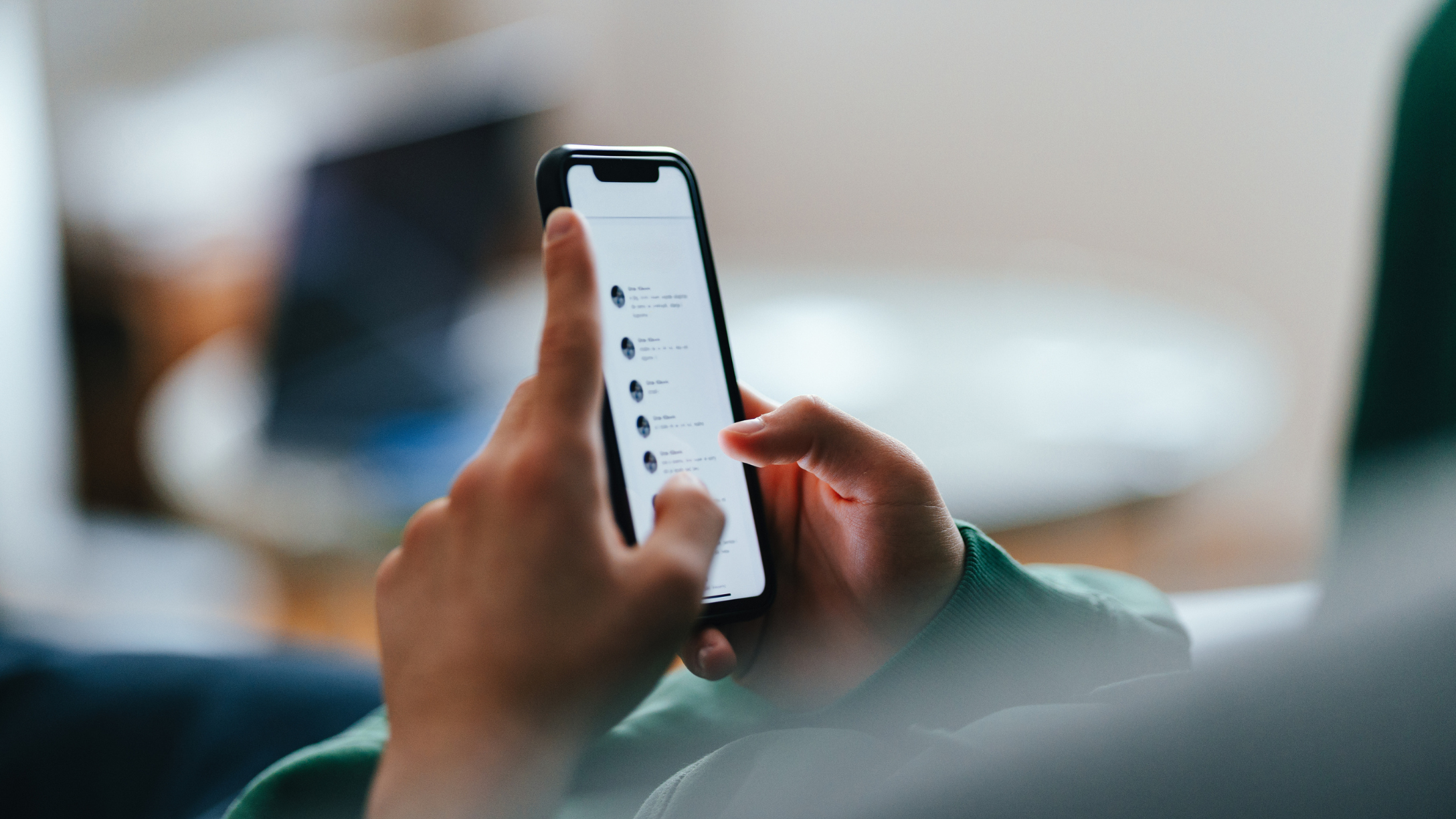
We like to think we know everything about our children’s lives. But in reality, from pretty early on, our children are seeing and experiencing things we are not privy to. Most of the time, it’s something innocent like what happened at school that day. But in other instances, it can be something dangerous and potentially life- or soul-threatening. That was the case for one pre-teen who found himself being groomed online by an adult.
More from CafeMom: Popular Game Gives Sexual Predators Scary Access to Your Kids
When Haynes was 12, he started talking to a 19-year-old online.
Harrison Haynes was in middle school when he met a stranger on a gaming app. While Haynes was 12, the stranger told him he was 19. While the two never met in person, over the span of a few months Haynes started to consider this man his "best friend." Eight years later, as a 20-year-old college student, Haynes is not only able to conceptualize the relationship differently, he understands the factors that made him susceptible in the first place. "I'm not making friends, so this gaming space was like a really good space for solace for me," Haynes told Good Morning America. Eventually, the two became so close his new friend asked Haynes to move the conversation off of the gaming app and start texting each other.
More from CafeMom: 12-Year-Old Girl Accused of Stealing Dad's Car, Driving 400 Miles To Visit Online Stranger
The friend started exposing Haynes to darker, more adult content.
Over the course of a year, Haynes' "friend" exposed him to pornography, images of self-harm, and even managed to drive a wedge in between him and his family. Today, Haynes shares his story in order to raise awareness about the potential threats technology, including cellphones, social media, and texting, pose. "Everyone was told that there's going to be a stranger in a white van handing you candy, and you should say no to that stranger," Haynes said. "But I think for us and for my generation, the danger isn't the stranger in the white van. That's not where the call is coming from. The call is coming from inside our pockets. It's coming from inside our iPhones."
'I felt like I was going to get in trouble,' Haynes said about why he kept the relationship private.
In retrospect, Haynes said the stranger was able to foster a sense of intimacy by being a listening ear. "In so many ways, his relationship with me, our friendship, it started so slow that it didn't feel like I was talking to a stranger," Haynes explained. "It felt like I was talking to a mentor, like a brother," Haynes said. "I definitely connected with him better than I did with my peers at school, because for every time I got bullied, he was there to support me."
But that support came with a more sinister side. "He slowly started exposing me to content like self-harm and images and videos of online pornographic content as a 12-year-old, my first time being exposed to porn." The messages came while Haynes was at school, during extracurricular activities, and even when he was eating dinner with his family.
Haynes noticed that his friend started to change. The messages increased from two to three times a week to four to five times a day. It wasn’t long before Haynes started participating in the self-harm and explicit content. (Though he shared that he never sent photos of himself to the 'teen.') Because of this, he kept the friendship with the teen, a secret. "I didn't think I could reach out to an adult anymore," Haynes said. "Part of the issue was the taboo and the stigmatization of all of that. I didn't feel like I could reach out to a principal or a counselor or a teacher or my parents, because I felt like I was going to get in trouble."
'I cried so loud that I woke up my parents down the hall,' Haynes said of the night his parents learned his secret.
Eventually, Haynes wanted the relationship to end. But he didn’t know how to get out of it. "It was someone that I really did deeply care for, and I knew that if I had reached out for help, that potentially would put him in danger," he said. "There was this weird back and forth in my head, like, I want to get out for myself, because now I'm self-harming and now I'm consuming pornography as a 12, 13-year-old boy."
After a year of communicating in secret, Haynes' parents found him using his cellphone to communicate with the older "teen." At that time, Haynes' parents had a rule that his phone would be kept downstairs at night, to prevent overuse. That night, he was talking to the 'friend' who was threatening to take his own life. "I cried so loud that I woke up my parents down the hall," Haynes said, adding that his parents then went through his phone and discovered his messages with the "teenager."
Haynes' parents saw everything. Thankfully, they didn’t react negatively. "They didn't seem upset. They didn't seem mad at me like I thought they would," Haynes recounted. "They sat me down and told me I was being manipulated in some sort of way. I don't think anyone in our world had the language yet for grooming. I don't think we knew that yet."
Eventually, his parents shared the story with a school resource officer. The officer and Haynes’ parents eventually reported the "teen" to police. The case was not prosecutable "due to a lack of evidence and limited cooperation from the family."
Once his parents learned of the inappropriate relationship, Haynes cut off communication with the 19-year-old and began to heal from what he had experienced. That healing included him limiting his time spent on social media and smartphones in general. For two years, he used an old flip phone.
Today, Haynes is demanding more from tech companies and issues words of warning for parents.
As an adult himself now, Haynes sees that he was groomed by his "friend." Grooming, according to the Department of Homeland Security, is a process in which a predator establishes a connection online with a minor by "offering support and attention to gain their trust." Haynes also blames Apple’s iMessaging platform for not having features that could have helped keep him safe, including the ability for Haynes to report and block his teen friend. This past June, Haynes participated in a protest at Apple headquarters, demanding that the company integrate additional measures to protect children who use the company's products.
In its defense, Apple noted the Communication Limits feature which allows parents to be able to choose the people their children are able to communicate with. There is also a safety feature that issues a warning when minors attempt to send or receive images that contain nudity. But more important than the tech features, Haynes said it’s important that parents foster an environment for open and honest communication.
"Parents, I cannot emphasize this enough, do not be afraid to talk to your kids about uncomfortable things," Haynes said. "If I'd had that conversation with my parents, I wouldn't have needed to find solace in an online stranger."




